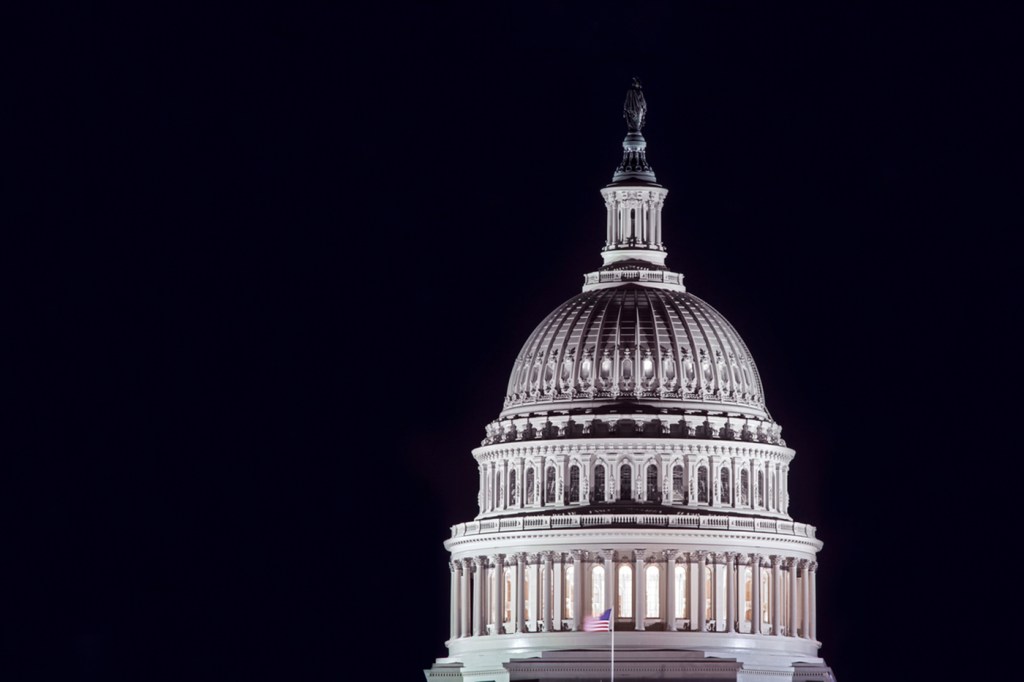Government shutdown: What can break the impasse in Washington

The United States federal government shut down this weekend, as Congress couldn’t pass a short-term spending plan. Both Republicans and Democrats dug in their heels and blamed each other for the impasse.
There was some optimism Sunday that a bipartisan group of moderate Senators could reach an agreement to reopen federal agencies Monday morning. But late Sunday the Senate adjourned without a deal to end the shutdown, and a new vote was postponed until Monday at noon.
What happened, and what happens next
Northeastern political science professors Costas Panagopoulos and Nick Beauchamp both underscored that increased partisanship and political polarization in Washington contributed largely to the impasse and has led to an increasing number of short-term spending bills in recent years that keep the government funded on a temporary basis as legislators continue working toward longer-term deals.
The third continuing resolution of the fiscal year expired at midnight Saturday, after the Senate voted against a new short-term spending bill Friday evening. Beauchamp also noted an important factor: Senate Republicans this year had already used its one reconciliation for the year—which allows for passing appropriations with only 51 votes as opposed to 60—for passing its tax bill. So the Senate couldn’t use it again here.
This is precisely the type of stalemate that the country is frustrated with.”
Costas Panagopoulos
professor of political science
At the center of the impasse is immigration. Senate Democrats have insisted that any deal include protections for the “Dreamers,” immigrants who were brought to this country illegally as children. Republicans, meanwhile, said they wouldn’t negotiate on that until the government reopens.
Last month, with the threat of a shutdown looming, News@Northeastern examined what happens to federal workers and services. Thousands of federal employees are placed on furlough, and services such as passport processing go offline. Certain agencies are exempt, including the U.S. Postal Service, so delivery of mail continues. Military personnel on active duty keep working and get paid up until Feb. 1. Special counsel Robert Mueller’s investigation continues.
Long-term effects of short-term spending bills
Panagopoulos and Beauchamp said short-term spending bills have become the norm in Washington. As Panagopoulos put it, “When you can’t find common ground to move forward on longer-term solutions on these issues, the only option is to adopt temporary measures.”
But Panagopoulos pointed to the fact that incumbents’ reelection rates are staggeringly high despite Congress’ traditionally low approval ratings. For this reason, he argued, breaking the impasse in Washington might come down to voters holding their elected officials more accountable.
“If the public puts its foot down and insists that politicians find compromise and rewards those who do so, that would break the impasse,” he said.
Which side stands to lose more?
“This is precisely the type of stalemate that the country is frustrated with,” Panagopoulos said. “Any attempt to back down can be perceived as weakness within their respective bases that politicians consider to be risky for their political futures. It makes governing very difficult.”
Two polls released Friday, just before the shutdown took effect, found that more Americans would blame President Donald Trump and Republicans for the shutdown than would blame Democrats. Indeed, the GOP controls the White House and Congress, and the shutdown marked the first when one political party controlled the White House, the House, and the Senate. Yet, with much uncertainty ahead of the crucial midterm elections in November, Beauchamp said there’s good reason for Democrats to be wary of a shutdown.
If everyone’s popularity took a hit, it would probably hurt Democrats more than Republicans.
Nick Beauchamp
assistant professor of politlcal science
Trump’s low approval rating, Doug Jones’ Senate win in Alabama, and the incumbent president’s party historically suffering losses in midterms are among the factors pointing to optimism for the Democrats in the midterms. But Beauchamp said given the uncertainty of how—and how long—a shutdown will play out, the Democrats risk losing some of that edge.
In fact, a CNN poll found that the majority of Americans say approving a budget agreement to avoid a shutdown is more important than passing a bill that would maintain DACA. “If everyone’s popularity took a hit, it would probably hurt Democrats more than Republicans,” he said.
The Trump factor
The shutdown coincided with the one-year anniversary of Trump’s inauguration Panagopoulos said the election of Trump, a Washington outsider, was in part a signal from voters that they’re frustrated with the gridlock on Capitol Hill. Trump has boasted himself a dealmaker, but he couldn’t broker one here. What’s more, even some Republicans publicly expressed frustration that the president’s stance on some of the key issues involved remained unclear as the deadline loomed.
And earlier this month Trump rejected a compromise spending bill because he said it didn’t include enough funding for his long-promised border wall.
“Whatever happens,” Panagopoulos said, “the public may start to realize the limits on Donald Trump’s personal ability to find common ground and make deals in the way he’s suggested.”





